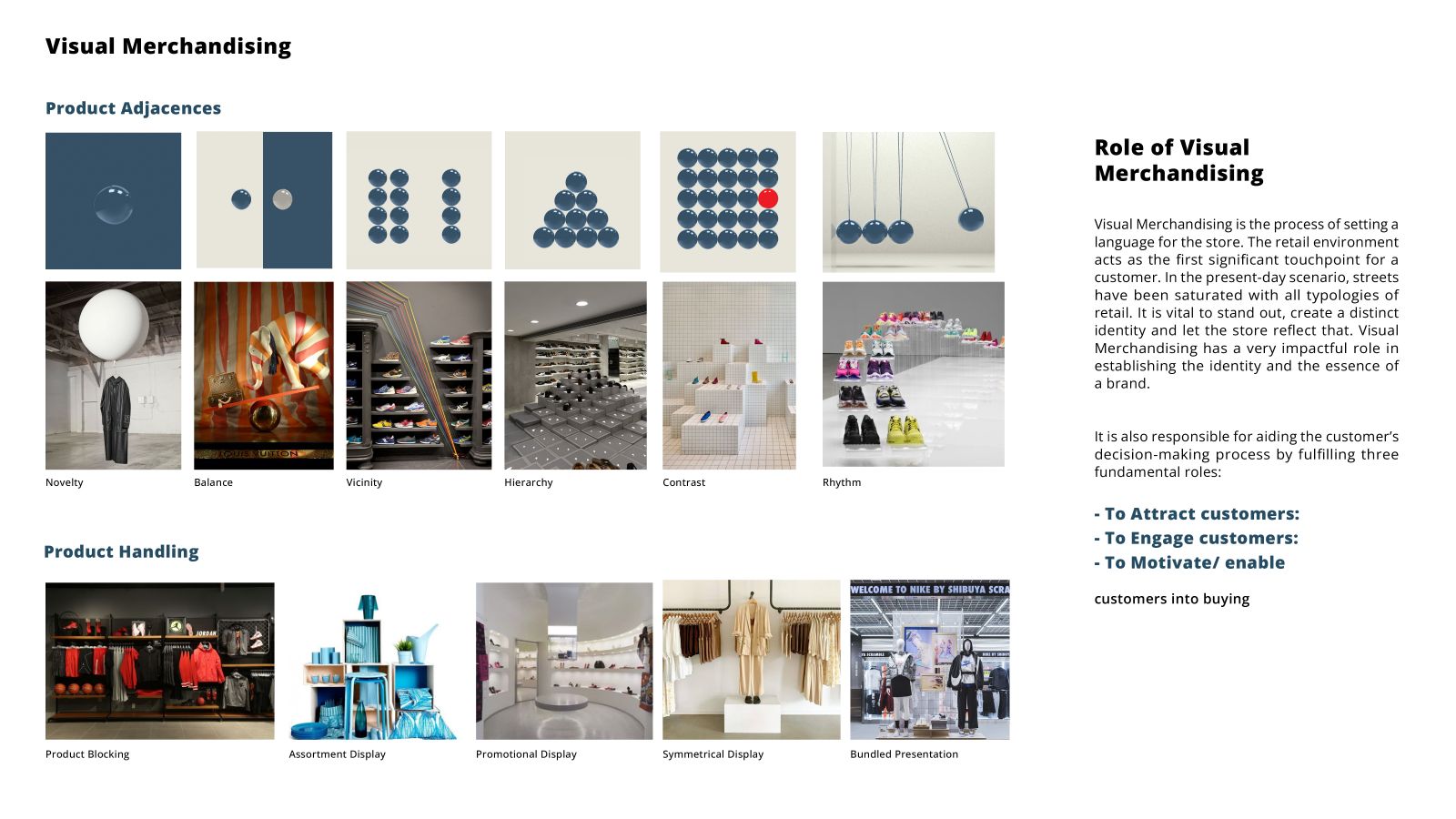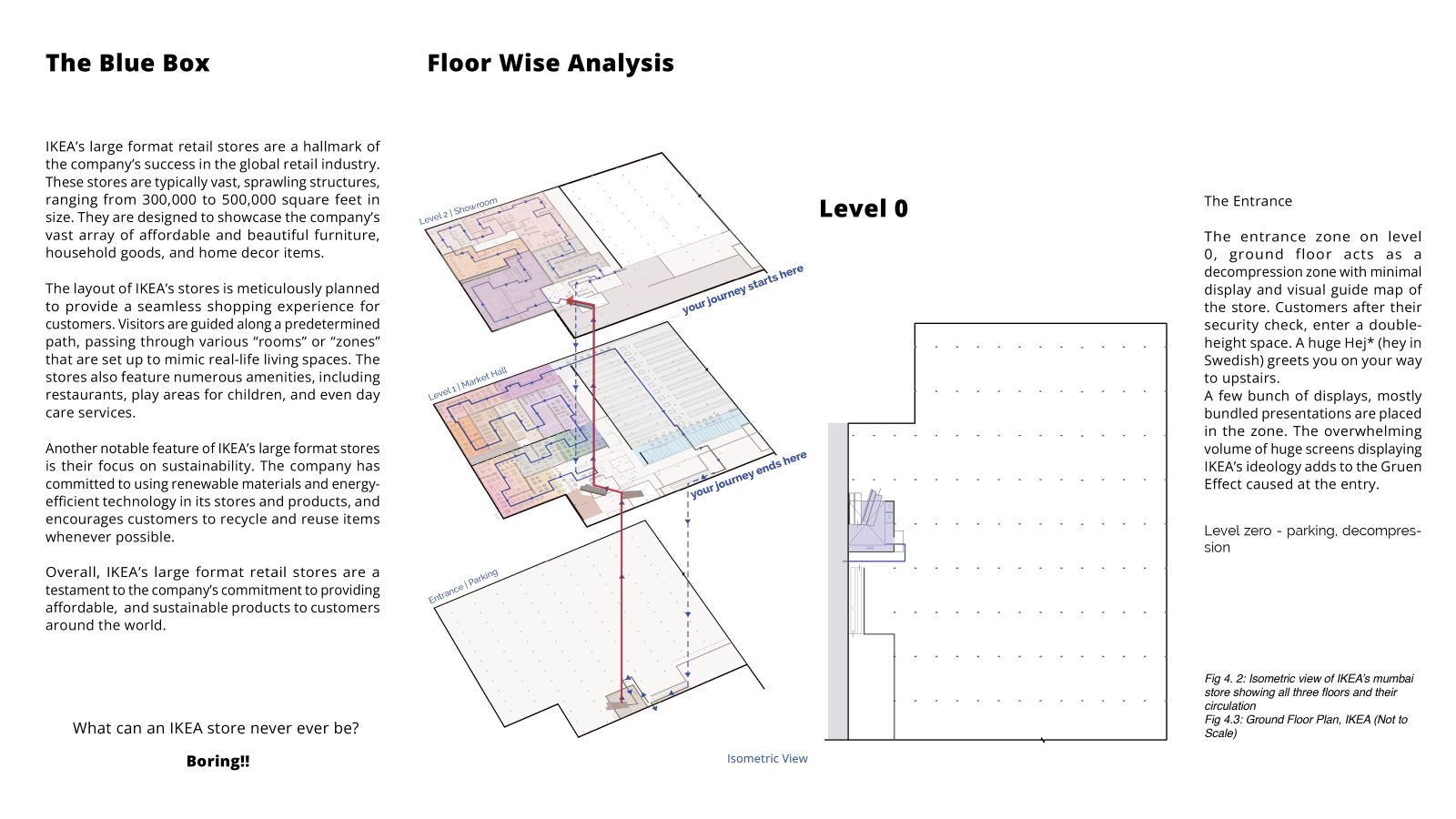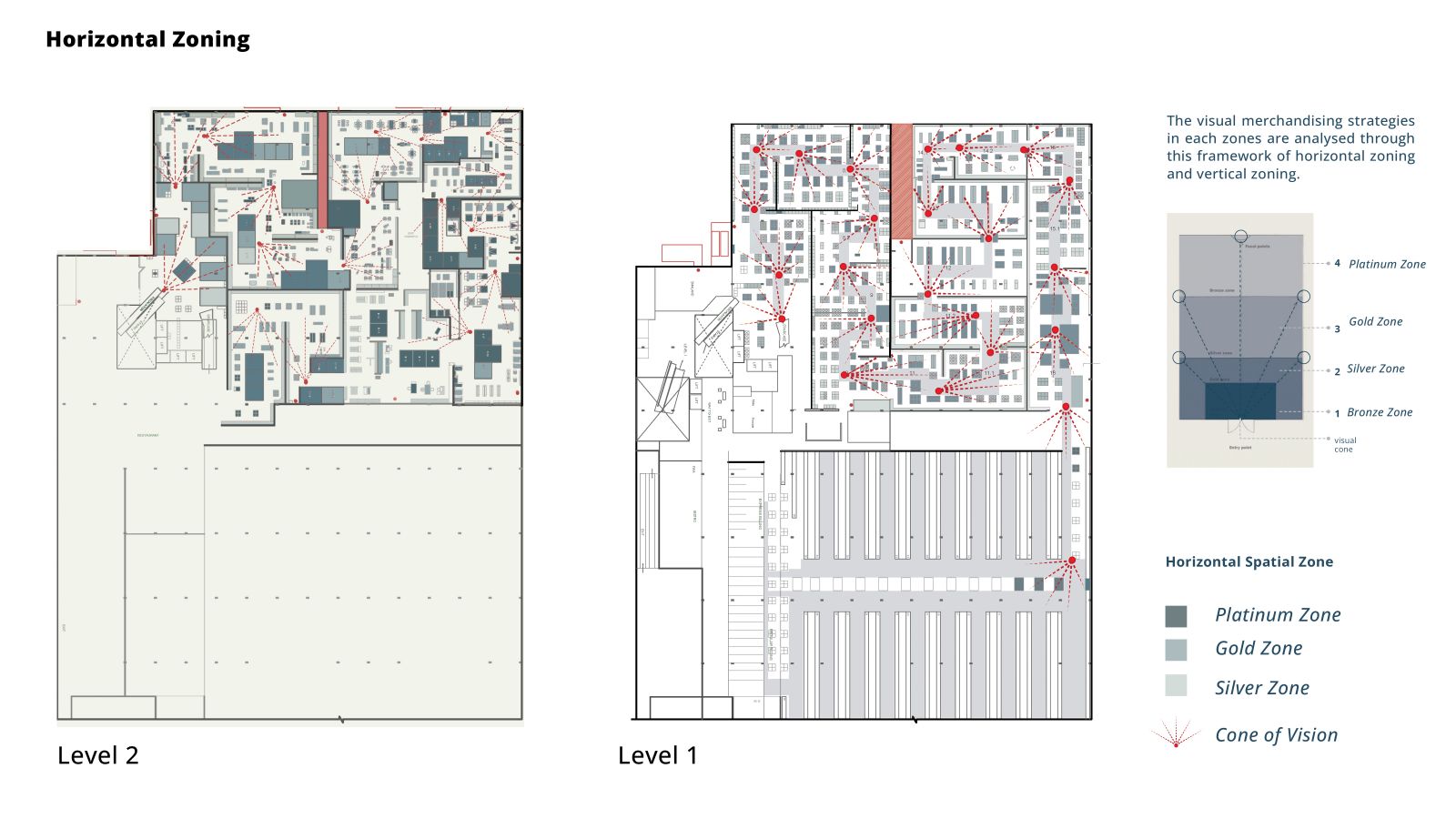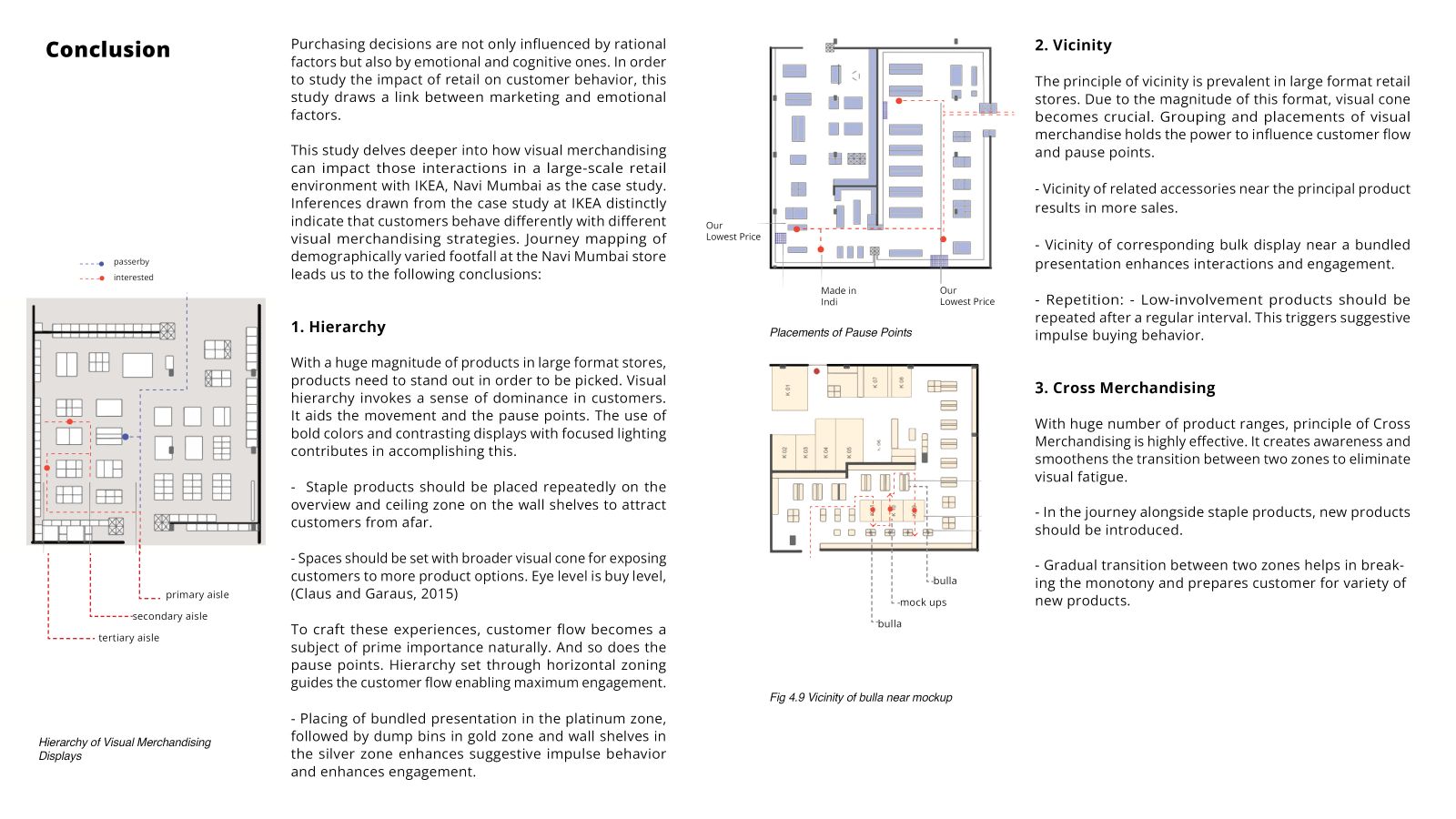Your browser is out-of-date!
For a richer surfing experience on our website, please update your browser. Update my browser now!
For a richer surfing experience on our website, please update your browser. Update my browser now!
The Retail Catalyst:
Role of Visual Merchandising in Retail Design and its impact on Customer Behavior.
Introduction
Andy Warhol said, ‘All department stores will become museums, and all museums will become department stores.’ (Grimes, 2021) The essence of this is highly pertinent in present-day retail stores. Visual merchandising is an essential part of store design, as it shapes the ‘language of the store.’ It is the art and science of presenting products, with the goal of turning shoppers into buyers. A brand’s core revolves around its consumers, with each brand possessing a unique personality tailored toward serving a specific target audience. To enrich the retail experience in order to strengthen the connection between the brand and its audience, it is essential to conduct comprehensive research on their emotional needs, wants, and reactions to the brand environment.
Therefore, the initial part of this study focuses on a literature survey of customer behavior, their needs, purchase decision models, and theories on buying behavior. The comprehensive nature of large-format retail stores provides an understanding of spatial magnitude. As a result of its considerable vastness, a diverse range of merchandising strategies is employed to cater to the unique demands of distinct product categories, thereby ensuring customers remain engaged throughout their shopping journey. These strategies act as a psychological trick for a customer to buy more. IKEA stores, the blue box uses a set of subtle cues to persuade customers into making impulsive purchases.
According to Prof Alan Penn, 60% of IKEA’s overall sales come from impulsive buying, IKEA balances emotional and rational factors, causing shoppers to purchase more than planned. (Kataria, 2023) This study aims to delve into the visual merchandising strategies employed at IKEA and their impact on customers by mapping their journeys and pause points. This being a Large scale retail format, sets a brilliant example of how Visual Merchandising strategies shape customer behavior both emotionally and rationally which in turn results in increasing sales exponentially.
To understand in depth how visual merchandising strategies influence customer behavior in large-format retail stores this study uses a case study of IKEA, Navi Mumbai.
Aim:
To study Visual Merchandising strategies in a Large-format retail environment
and its impact on Customer Behavior.
My Directed Research Project:








.jpg)
